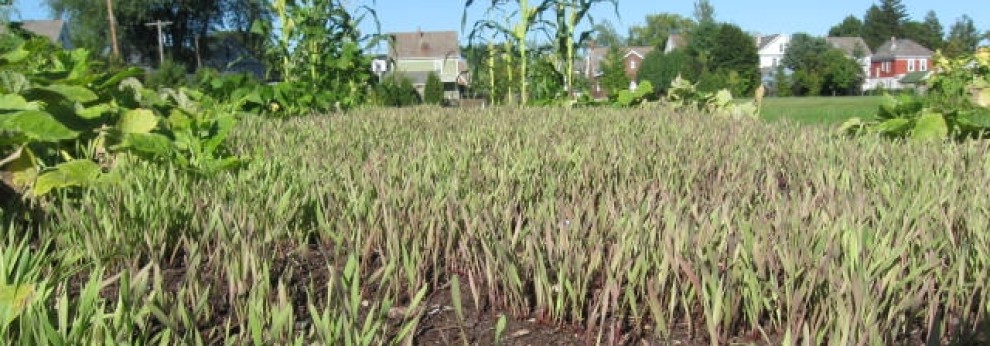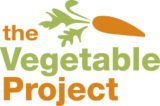
The Vegetable Project creates hands-on teaching and learning opportunities.
The idea is simple: We learn more and we learn more deeply when we do and touch and smell and taste and experience than when we passively receive what someone else has prepared. The execution is not so simple. It is messy. We make mistakes. It typically requires teachers to give very close-up and individualized attention.
No wonder we don’t see as much hands-on teaching and learning as would be ideal!
We offered Albany High students a taste of a variety of salad greens in the school cafeteria the other day — arugula, kohlrabi greens, mustard greens, pea shoots and more — that we raised under grow lights in classrooms. But plants died when we let our guard down. Some varieties that reach maturity quickly were ready before we were ready to use them and then lost their freshness and vitality while waiting for slower-growing plants to come along. We made more mistakes than we would want to count.
So, do we want to do all of that again?
You bet!
We created opportunities along the way to explore plant care, to tackle life-and-death responsibility, for kids with limited motor skills to carefully handle delicate limbs when harvesting, to present, to talk about composting and to try unfamiliar tastes without pressure. And as we go forward over the summer and into the fall, we’ll get more students involved in growing plants. We will get more students involved in the harvesting on the day of tastings. Students will make dressings and learn how to gently encourage yet other students to creep beyond their comfort zones to try something they may not like.
It will be messy. We will make mistakes. And we will give students very close-up individualized attention.
Do students, and especially those with the greatest needs, deserve anything less? We don’t think so.
Won’t you consider how you can participate in or contribute to the Vegetable Project’s work?
A final word: Big thanks go to two great partners in this recent tasting event and other hands-on learning ventures — Cait Denny, environmental educator with the Radix Ecological Sustainability Center, and Kim Maercklein, nutrition educator with the Capital Region Eat Smart New York Program of Cornell Cooperative Extension.
–Bill Stoneman


